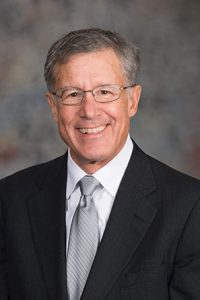Earned time incentives proposed
Individuals incarcerated within the state Department of Correctional Services system could reduce their sentences under a bill considered by the Judiciary Committee Feb. 10.

Under LB624, sponsored by Omaha Sen. John McCollister, incarcerated individuals could earn credit against their minimum sentence term for completion of pro-social and rehabilitative activities.
Earned time is a not a new idea, McCollister said, but it is currently not used effectively in Nebraska.
“This will offer an incentive for all those incarcerated to … maintain good conduct while in custody,” he said. “This hugely benefits NDCS in that more of those in custody will be engaged in programming rather than engaged in negative or destructive behavior.”
Pro-social and rehabilitative activities would include seeking employment, education, reduced misconduct, self-betterment groups, peer support, drug treatment, spiritual awareness, entrepreneurship courses and restorative justice training.
LB624 would offer a wide range of earned credit depending on the activity, including up to one year of credit for completion of a general education development test. McCollister offered an amendment at the hearing that would allow individuals currently incarcerated to retroactively earn credit for pro-social activities completed on or before Jan. 1, 2017.
Spike Eickholt, speaking on behalf of the ACLU of Nebraska, supported the bill. It would provide an opportunity to further incentivize individuals in prison to get programming and attend classes, he said.
“There’s a certain segment of the population that just doesn’t do programming because they don’t see a point,” Eickholt said. “[The bill] would give people a reason to seek out that programming.”
Opposing LB624 was NDCS Director Scott Frakes. The earned time system created by the bill would complicate staff scheduling, he said, and inhibit timely delivery of clinical treatment.
“For those eligible for earned time, the bill creates disparities between those who have access to certain programs and activities and those who do not,” Frakes said. “Also, it’s not feasible to replicate programming and pro-social activities at all facilities, nor does it make sense to try to do so.”
The committee took no immediate action on the bill.

